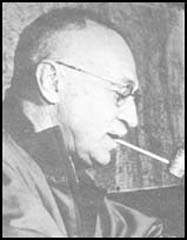unattractive and controversial 'nationalist' statesman; best known for his co-authorship of the Hoare-Laval Pact (1935), which sought to appease Mussolini by recognizing his claim to Abyssinia (Ethiopia), and for his collaboration with Germany following th fall of France; had earned a reputation during the 1920s for political agility, and was increaingly criticized during the war for his empirical stance to France's political problems; became Pétain's deputy from June to December 1940, when he was instrumental in persuading the Vichy government to ratify the armistice; assured colleagues that France would thus guarantee her share in the New Order which would follow from Germany's inevitable military success; out of favor and office between December 1940 and April 1942, was recalled as premier and continued his policy of collaboration, earning renewed hatred from Frenchmen by agreeing to supply French labor for German factories; taken to Germany and then Austria in 1945, escaped to Spain, but was returned to France, where he was tried for treason and executed by firing squad October 15, 1945.

Commando leader and British Chief of Combined Operations for the invasion of Northwest Europe in 1944; raised a commando unit in 1940 and early in 1941 took 3 commando units, including his own, to the Middle East for the projected capture of Rhodes; now known as Layforce, the force was joined by a locally raised Middle East Commando; elements of it operated on the Libyan coast, especially Tobruk, and took part in the invasion of Syria in June 1941; took half his force to Crete after the German airborne landings in May 1941 and it covered the withdrawal to the south coast; only a fraction, including Laycock himselfm returned to Egypt; his force was then disbanded, but partially resurrected at Churchill's insistence and in November 1941 let a raid on Rommel's suspected HQ; on this occasion only he and 1 other got back to safety; later commanded a commando brigade for the invasion of Sicily in 1943 and then returned home to succeed Mountbatten as Chief of Combined Operations, a post which he held until 1947. was later Governor of Malta.
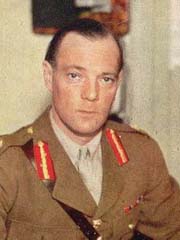
American ex-Chief of Naval Operations, waw called back from retirement to go to Vichy France as ambassador in 1940; was faced with the difficult task of liaising with the Vichy government and avoiding involvement in the war, while attempting to support the efforts of the French resistance against the German occupation; his dislike of de Gaulle, leader of Free France, however, had a clear effect on his judgement of the situation; is generally judged to have been a competent but uninspired ambassador; following his recall to the US in 1942, became Roosevelt's personal Chief of Staff and an increasingly important White House figure, acting as presidential liaison with the Joint Chiefs of Staff Committee and Roosevelt's close adviser and chief source of military information, with authorization to originate messages to the British government; As Chairman of the Joint Chiefs of Staff, earned a considerable reputation for promoting agreement among the often heatedly opposed service chiefs; when Roosevelt died, he remained at the White House as adviser to President Truman, taking part in the debate over the use of atomic weapons against Japan, which Leahy himself opposed.
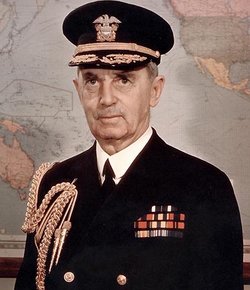
formed the crack French 2nd Armored Division, which fought in Normandy with Patton's US 3rd Army; liberated Paris in August 1944; advanced as far as Hitler's "Eagle's Nest" at Berchtesgaden.

served in World War I and remained in the army between the wars; in May 1940, during the attack of France, his troops broke through the Maginot Line; for his role in this victory, was promoted to the rank of field marshal (generalfeldmarschall) in July 1940, and awarded the Knight's Cross; was given responsibility for the attack on the Soviet Union in the northwestern sector and command of Army Group North in Operation Barbarossa; was to destroy Soviet units in the Baltic area and capture all Soviet Baltic Sea naval bases as well as Leningrad by July 21, 1941; when the invasion of the Soviet Union began on June 22, 1941, his armies met with outstanding success against an overwhelmed Soviet force; by the end of September, his army had advanced 900 km into the Soviet Union and surrounded Leningrad but he failed to capture the great city; the turning point in the defeat of German attempt to capture Leningrad was the battle of Tikhvin in October-December 1941; succeeded to capture Tikhvin on November 8, 1941, but on December 10, 1941 the Soviets recaptured Tikhvin; an old-school German general, did not take well to having his command micro-managed by an armchair general, namely Hitler; in January 1942 asked Hitler to relieve him of his command and Hitler reluctantly agreed; was officially announced that he had voluntarily stepped down due to illness not because of his defeat; was never used again by Hitler.
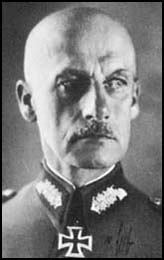
popular and able field commander, Deputy Chief of Staff of the British Expeditionary Force during its escape from Dunkirk and later protégé of Montgomery (whom he eventually replaced as 8th Army commander; was promoted under Montgomery to lead the XXX Corps, 8th Army, for the (2nd) Battle of Alamein and subsequently for the invasions of Sicily and Italy; in January 1944, succeeded Montgomery, but handed over leadership of the 8th Army to McCreery in November when he was appointed Commander of Allied Land Fores in Southeast Asia.

ambitious and aggressive head of RAF Fighter Command from November 1942, commanded No. 12 Group RAF Fighter Command during the Battle of Britain and was a firm advocate of the 'Big Wing' fighter formation tactic against the Luftwaffe; although these views brought him into conflict with Park, No. 11 Group Commander, and C-in-C Fighter Command, Air Marshal Dowding, was later given the opportunity to initiate offensive tactics when Dowding was replaced by Air Chief Marshal Douglas; appointed head of the Allied Expeditionary Air Force for the coming invasion of Normandy in late 1943; his dogmatism and bluff manner brought him into regular conflict with the strategic air force commanders, uneasy with his lack of experience of heavy bomber operations; made a significant contribution to the invasion plans, however, in his support for a concentrated preparatory air assault on communications in Normandy that was crucial to the success of the D-Day landings; in November 1944, was promoted Air C-in-C, Southeast Asia, but died in an air crash en route.

American pilot who became an expert in air bombardment tactics over Japan and Europe, earned a considerable reputation as a navigator with the pre-war US Army Air Corps and was sent to England in 1942 in command of the 305th Bomb Group (8th Air Force) where he led the campaign of daytime strategic bombing; his employment of flying-formation (combat-box) tactics introduced a new success rate in American bombing techniques; chief American proponent of strategic bombing in World War II, employed pattern bombing techniques with devastating effect against Germany in the last phase of the war, though he had his most dramatic successes as Chief of 21st Bomber Command headquartered at Guam from late 1944; from here sent B-29 heavy bombers on missions to Japan; stripped of their defensive armament, heavily armed instead with incendiary bombs, and trained in new techniques of low-level attack, the tactic greatly increased the destructive power of the nighttime area bombing raids.

was educated at Eton and Ghent University; became Belgium's monarch when his fater was killed in a climbing accident in 1934; took command of the army when Germany invaded Belgium in May 1940; believing that the Belgian position was hopeless, surrendered 18 days after the invasion, contrary to the wishes of his government, which wanted to continue fighting; the surrendered the French-British position untenable and made the Dunkirk evacuation of the British army an urgent necessity; refused to cooperate with the German occupiers, who held him under house arrest; although the Belgians eventually exonerated him from any responsibility for the 1940 defeat, abdicated in favor of his son in 1951.
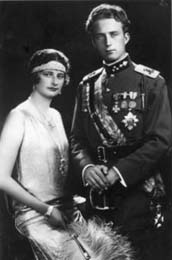
served in World War I and the Freikorps; held commands in the Reichswehr from 1923-1926; climbed the ladder in the Reichswehr becoming a Lieutenant General in 1932 and gaining command of the Fourth Army three years later; lead the 14th Army in the invasion of Poland and commanded the 12th Army's assault on France in 1940; awarded with a promotion to Field Marshal in July of 1940; was instrumental in arranging an agreement with the Bulgarians allowing the Wehrmacht to enter Greece via Bulgaria; was Commander-in-Chief of German armies in the Balkans from June through October of 1941; fortune changed dramatically as his armies moved into the Soviet Union; was dismissed by Hitler on September 10, 1942, who claimed that his Field Marshal failed to break the Russian line in the Caucasus; was tried by the American military tribunal at Nuremberg and sentenced List to life imprisonment in 1948; was pardoned in 1953 and died on June 18, 1971, in Garmisch.
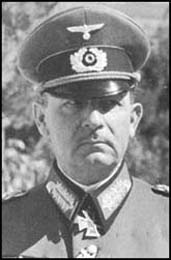
a native of Russian Poland and an early Bolshevik, served as Commissar for Foreign Affairs from 1930 to 1939, when he was replaced by Molotov in the realignment of Russian foreign policy that resulted in the Russo-German Pact of August 1939; having until then been an important advocate of co-operation with the West, remained out of favor until the German invasion of Russia in June 1941; subsequently served as ambassador to Washington, 1941-43, and as Deputy Commissar of Foreign Affairs from 1941-46.

was an Austrian Air Force commander during the 1930s, and after the Anschluss a Luftwaffe commander during the World War II; was born in Turnu-Severin, Romania; served as Platoon Commander of a Pioneer battalion in the 85th Infantry Regiment of the Austro-Hungarian army in World War I; was made Commander of the small Austrian Air Force in 1934, a position which he held until the Anschluss in 1938; on March5, 1938, was transferred to the Luftwaffe where he became commander of the Luftwaffe in Austria; held many posts within the Luftwaffe including the leadership of the 12th Army between 2 July 1942 and July 11, 1942; was its Commander-in-Chief through to December 1942; In 1943 was Commander-in-Chief of South East (1 January to 23 August 1943) and at the same time Commander-in-Chief of Army Group E up to the end of the war; was imprisoned by the Yugoslavs from May 15, 1945 to February 26, 1946; was found guilty of war crimes for the mass-murders of Yugoslav civilians and executed on February 26, 1946.

American staff officer who served as personal deputy to General Eisenhower in 1943; commanded the controversial operations following the landing of US 5th Army units largely unopposed, at Anzio on January 22, 1944; lacking confidence in the operation from the onset, was judged to have made a timid decision to consolidate the Anzio beachhead rather than strike inland while the German forces awaited reinforcement; though this decision had the backing of his commander, Gen Mark Clark, was removed from his command and replaced by Maj-Gen Truscott.
